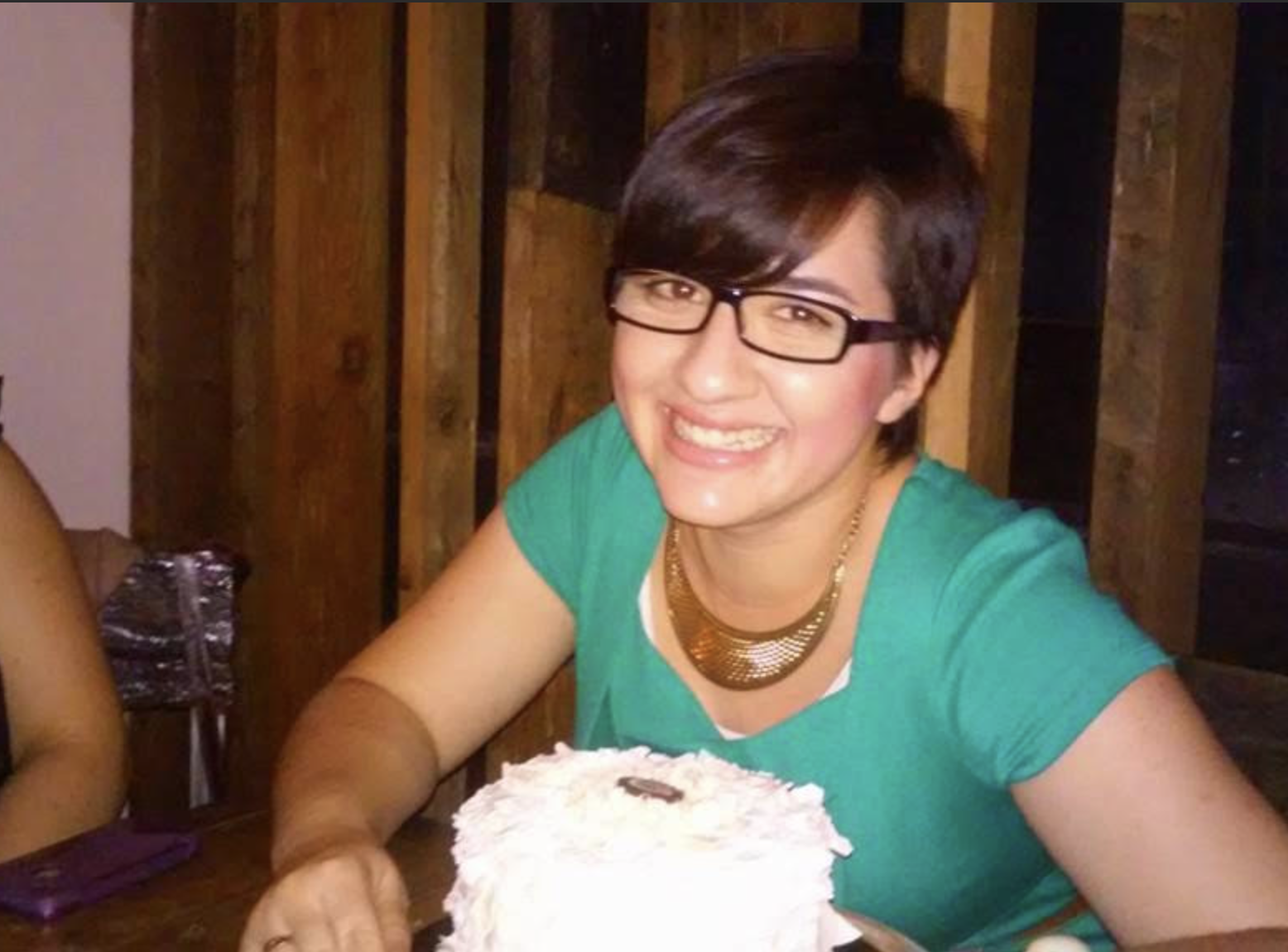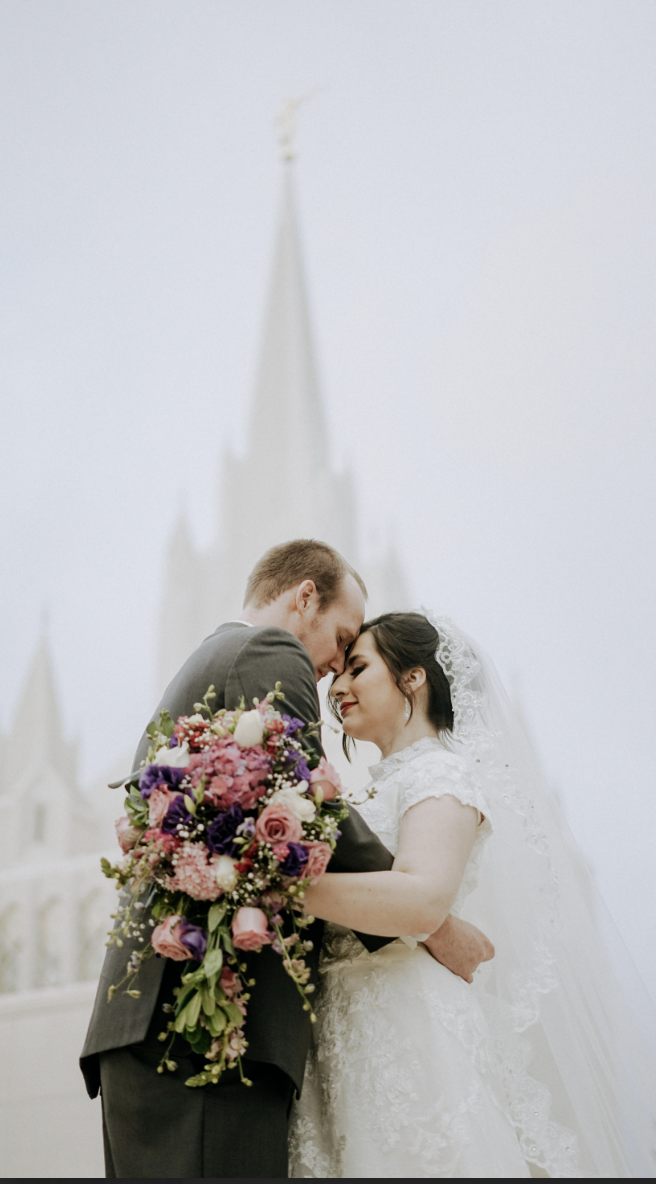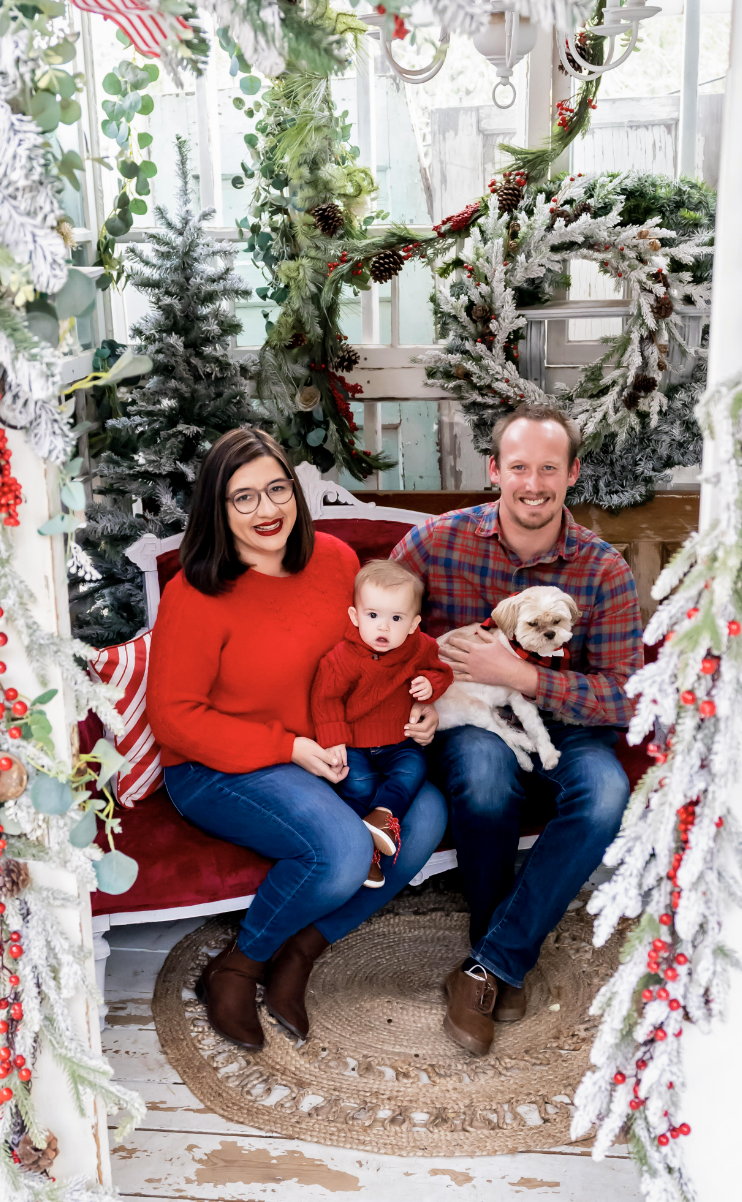Liv Mendoza Haynes claims she fits the birth order stereotype. As the last of three kids, she was the much younger spoiled baby of the family who could convince her parents to cook an alternate meal if the initial wasn’t to her liking. But being raised in a Catholic home with high expectations, she adapted accordingly as she grew. Her mother was in and out of hospitals with illness, leaving Liv’s much older sister to care for her and her brother when they were not at Catholic school. Once Liv began to notice the family had financial struggles, she minimized her special requests.
Though Liv and her brother were born in America, they were raised in Tijuana, Mexico, where her father worked long shifts as a police officer, and her mother often left the kids to be babysat with a good friend who was a known drag queen. Liv remembers it being no big deal that the babysitter would have peers from his drag community stop by for wardrobe fittings while Liv was there. She was told it was no big deal for men to be gay, but her parents spoke negatively about women who were lesbian. Her father would also express distaste for women who joined the police force or who became “manly, lost their attractiveness, and didn’t know their place.” Liv was taught that one of the worst things she could do would be to be with a woman or to not be feminine.
This presented a problem as, while Liv was extremely close to her mom and sister, she did not share their love for makeup, high heels, and feminine things. Liv preferred her daily jeans, t-shirt, and Converse. She developed her first technical crush on a boy in the first grade, but strategically chose a boy who was mean to her, knowing it would never work out although it would help disguise the way she felt about girls from an early age. As her mother’s health declined, Liv sensed she needed to not add to the family burden by disappointing them with her attractions. She shared her mother’s and sister’s strong personality and kept her friend group small, having the same small cluster of three or four friends throughout her school years.
In high school, Liv dated an LDS young man, but was his last girlfriend, and he is now married to a man. He would often joke with her about LDS myths. Around this same time, Liv’s ex’s brother decided to go on a mission[LM8] , and told Liv to keep an eye on his parents. While he was gone, he referred the missionaries to her door while she was baking a cake. One elder mentioned it was his companion’s birthday that Thursday and Liv said, “What do you want me to do about it? You can come back for food or water, but that’s it.” The elders left, and Liv followed a prompting to run after them and offer them cake at 2pm on Thursday—assuming they wouldn’t be able to come then. But they did, and Liv began taking lessons. One day, she invited a handful of missionaries over and made popcorn so they could all watch a Joseph Smith video, per her request. After they asked if she had any questions, and she asked why they hadn’t yet challenged her to be baptized? She sidestepped telling her parents until the following May, but was baptized that December. And yes, there was cake.
Throughout her teens and young adulthood, Liv noticed her feelings for women even more, and did have a relationship with a woman. When her mother felt it was time for her to have “the talk,” she handed Liv a VHS tape and told her if she had any questions, to ask her sister. But as the tape shared no tips about orientation, rather it was a childbirth video, Liv only walked away from that experience traumatized, thinking “I’m never going to have intimacy if it leads to that.” But it cemented the expectation in her mind that the expectation was for her to have a family. While in high school, Liv’s mom teased she had a “type” of guy she’d go on dates with (those into the arts and cooking who had more androgynous, scrawny body types). Around age 17, Liv started struggling with health conditions of her own, and found out she had a higher chance of getting cancer than becoming a mom. Doctors recommended she get a hysterectomy, with her unusual gynecological issues. Liv’s self-esteem plummeted, feeling a lack of worth as if she was “defective” if unable to have children. While always expected to achieve, the messaging she received was, “It doesn’t matter if you excel. At the end of the day, your expectation is to have a family. If you’re infertile, no guy will fall in love with you.”
These insecurities possibly propelled Liv into developing an unhealthy relationship with a man in Mexico City who “looked perfect on paper,” but over time revealed himself to be controlling (even ordering for her at restaurants) and ultimately, physically abusive. When he slapped her across the face at a party in front of their friends, Liv was stunned, and even more so that none of her friends they were with did or said anything about it. A casual friend nearby noticed it, and took Liv away from the scene to recover. Liv ended up going back to the boyfriend some time later, partly because of outside pressures she was receiving, including a man at church telling her no man would want her because she was broken goods. A few months later, the relationship turned even more physical, and after an especially violent attack, a friend thankfully found Liv in her apartment and took her to a hospital where she stayed for a couple days to recover. When she was released, her first thought was to go to the temple. While she felt less than worthy to go inside, she knew just being on the grounds might bring her peace. She felt like she couldn’t tell her parents about the abuse, thinking her father would cause harm to the guy and she didn’t want to bring them shame. Liv says, “Before that, I would have said, ‘I don’t know how strong, educated women let men do this.’ But then, I became the person I’d judged.”
On the temple grounds, Liv had a breakdown that led to a security guard helping her call a local bishop who led her to talk to a counselor from back home in Tijuana. She blurted out she needed to go on a mission, which she did at age 22—partly to get away from the abusive boyfriend and partly because she felt she had to serve (having been raised under the motto, “If you’re not living to serve, you don’t deserve to live.”) Ironically, Liv was called to serve her mission in Mexico City, near the temple where she had her breakdown as well as close to her ex, but she managed to avoid running into him. While her mission was healing, it also opened her eyes to just how much emotional and psychological support missionaries need.
Liv began to feel like two people—the Tijuana Liv, who was strong and powerful, and the Mexico City Liv—who wanted to date girls and was in some ways, more submissive. After completing her mission, Liv’s commitment level to the church was high, and she struggled for a couple years with whether sharing her feelings about girls would be best for her spiritual and emotional journey.
One night, Liv decided to confide in a friend with a trans brother, which turned out to be a good instinct. The friend knocked on Liv’s door with a Little Caesar pizza. When Liv opened it, she blurted out, “I’m attracted to women. I really like women a lot!” Without missing a beat, Liv’s friend replied, “Well, I like eating my pizza hot—can I come in?” Liv now says, “I don’t think people understand how comforting her response was. It was like, ‘Oh, I learned something about you—let’s talk.’ The best kind of reaction.” The two talked all night and Liv’s friend shared many resources. Liv says she wishes she could say “it was all bliss” after, but Liv spent the next nine years rediscovering herself and toggling with her identity. She finally settled on “queer,” as she was introduced to thousands on a well-known stage she shared with Sister Sharon Eubanks who asked her questions about her reality at BYU’s Women’s Conference several years ago. It was a moment that surprised many, and made Liv feel a sense of validation and acceptance after feeling like she’d grown up at constant intersections: “You’re not American enough, not Mexican enough, not a citizen, not feminine, you don’t like makeup.”
Recognizing it’s not the preferred term of generations past, the term “queer” still works best for Liv as she says, “It helps me feel happy, and also respectful of the person I’m sharing this journey of life with.” That person happens to be her husband, Matthew, who she met six years ago while playing Two Truths and a Lie on an app. Matthew had just moved to Utah from Montana and was looking to make friends. He handled her Harry Potter banter with humor, and their first date was eating brownies together that Matthew had made. They haven’t spent a day without talking since, and Liv says Matthew is in every sense her best friend. Her prior attempt at online dating had ended quickly after she told a guy with whom she had good chemistry about her attractions and he in turn shared his wife had just left him for her ministering sister. Liv quipped, “Well, at least you have a type.” They went on a couple more dates until his demeanor started to remind her of her ex. A therapist then told Liv just to focus on making friends, which is when Matthew appeared.
When people criticize Liv for being in a relationship with a man just to comply to the church standards, Liv says, “Honestly, that hurts because that person doesn’t know my whole story. My relationship with my husband, as public as it may be, is still our relationship. It’s hard when people have preconceptions. The reality is I fell in love with Matthew. The only way our dating happened is I stopped looking at marriage as something on a checklist and more of an opportunity to be with someone who knows and loves me. We respect each other, and he met me knowing I was open to dating men, women, and anything in between. It’s my reality, my experience, and what works for us. Every day, I choose him, and he chooses me.”
Liv laughs that no, Matthew does not get nervous when she goes away for a weekend with her lesbian friends. “I feel that if my husband didn’t trust me to be alone with someone of the same gender, we have a bigger problem. It’s about integrity, faithfulness, and values.” Matthew was not as familiar with the LGBTQ+ community before Liv, but she laughs he now has several lesbian friends of his own. Liv does not recommend a mixed orientation marriage for everyone, and says it took her years to figure out what works for her. “We’ve both grown a lot from being together… It’s a mixed relationship in many degrees – culture, orientation, language. I’m social sciences, he's exact sciences. We have enough in common to have a path together – but enough diversity to learn from each other every day – which is key to our marriage. Plus, I get to learn random dinosaur names.”
After undergoing three IVF treatments, the two share their son Lucian as well as an angel baby in heaven, and are expecting a new baby they will call Elijah, due November 25th. Throughout their prenatal care, they’ve become aware this baby will be born with challenges, and being open about that has helped Liv cope and “be human.” She says, “As Christ had outbursts, I’m allowed to have moments where I say, ‘This sucks’.”
If life’s taught Liv anything, it’s that she can take moments to have her cake and eat it, too. Shortly after exiting the relationship wherein she experienced domestic violence, it was Liv’s birthday, and a friend asked what she wanted. Liv requested a certain cake from a certain bakery because it was her favorite. The friend brought the cake Liv requested to a restaurant to celebrate with friends. After the wait staff brought out the cake and everyone sang to Liv, she instructed the server to wrap up the cake. Baffled, the group questioned her decision not to share it. Liv replied, “It might sound selfish, but this gift is my cake and I’m taking it home.” She continues, “It might sound silly but it’s symbolic—we are conditioned that if you’re not constantly happy and thankful for the trials you’re going through, you’re not a good person. But the reality is you need to know your boundaries. I had to work for years to learn to find power in my voice and use it. These boundaries are the only way I’ve been able to stay alive. You can’t show gratitude if you’re not here. Where’s the progress if you’re not truly loving yourself? I’m not willing to risk not being my full self.”























